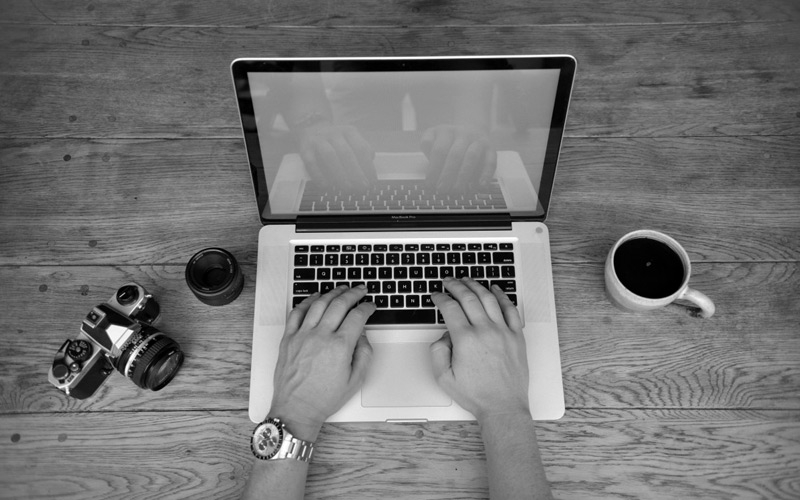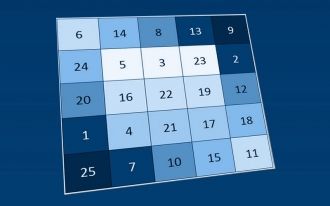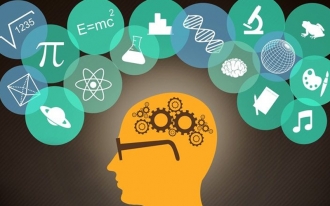- BRAINTRAIN |
- Blog |
- Brain Development |
- Digital Minimalism Boosts IQ

Bogdan Moroz 12.02.2020 1442 Comments
If you’re reading this, you’ve likely sensed the value of simplifying daily activities and focusing clearly on how you spend your time. You probably suspect that this apparent simplicity holds the key to remarkable productivity and a new sense of life quality.
Regarding digital minimalism’s impact on intellectual potential, it’s essentially a sustained, effective attention training. We gradually learn to focus only on important tasks or actions, consciously rejecting distractions.
Supporting this, the University of Toronto, a leader in neuropsychological research, found that multitasking reduces concentration and degrades information processing. IQ tests revealed a 10% intellectual potential loss in multitaskers, a greater impact than recreational drug use.
This article not only explores principles for enhancing attention but also provides practical steps to integrate this strategy into your life. If you think minimalism is for the limited, consider Albert Einstein’s words: “Everything should be made as simple as possible, but not simpler.”
Why Simplify Your Digital Space?
Many associate “minimalism” with denying oneself modern conveniences for vague spiritual reasons. This is far from the truth. In today’s world, true minimalism begins with controlling time consumed by digital reality.
Time Savings
The most obvious reason to declutter your gadgets is to reclaim time for real life. Precious minutes are wasted searching for files in digital clutter, scrolling a stranger’s post, or lingering on unfinished tasks with open browser tabs. Perhaps your morning coffee with a vlog stretches four times longer? Post-work social media browsing can unexpectedly extend into late hours, past bedtime.
Decluttering the Brain
The hypothesis that our brain is limitless, using only 3% of its potential, is just that—a hypothesis. It conflicts with the energy demands of neural tissue. A separate article details ATP molecule production, which neurons consume in vast quantities to maintain viability and generate impulses. The brain uses 50% of the body’s energy yet can still face starvation under heavy loads. Extreme overload can lead to irreversible neuron death and lost connections. Reserve this precious resource for vital tasks.
Extending Device Lifespan
Any gadget performs faster, longer, and more reliably when not pushed to 100% capacity. Processors overheat, memory degrades after cycles, and screens have limited lifespans. While minor, mindful device use extends their longevity.
Regaining Control
We believe we control our time and plans, but analyze your last week. Ask: “How much did digital device use alter my intended time allocation?” You’ll see habits, not plans, dictate your day. Radical change takes time, but organizing your life can make it more efficient and fulfilling.
Practical Steps
For someone entrenched in habits, rapid change is tough. Here are sequential steps to organize your devices and habits.
Setting Priorities
Results require understanding your actions and purpose. Blindly following trends won’t satisfy, even with positive outcomes. First, define your life’s global, long-term goals. If you lack them, address this urgently—without goals, these efforts are pointless.
From global goals flow intermediate and short-term ones, which we focus on daily. Your gadgets and their apps should support these.
Assessing Value
Impartially evaluate everything in your digital domain with one criterion: does it advance my goals? If an app, file, or website doesn’t contribute—or worse, distracts and wastes time—delete it immediately.
App Decluttering
Your device shouldn’t host apps unrelated to your priorities. Some are not just useless but harmful to time and health. A short list of essential apps makes finding what you need quicker and less stressful.
Even if social media is necessary for work, like advertising, it doesn’t belong on your phone, tempting hours of scrolling. Blogger Matt D’Avella showed that posting via a laptop app freed productive time for quality content, boosting followers.
Even a desktop wallpaper can distract, diverting thoughts and reducing productivity.
Planning Productive Time
Planning works, but only if everything has a designated time and you stick to it. Even checking email should be scheduled, not cutting into other tasks.
Assign time for each app, closing all other tabs and background apps. Consider airplane mode—nothing critical will happen if you return a call in 20 minutes. Don’t anticipate emergencies or keep your phone at hand.
Plan no more than two significant tasks daily. Slow, steady progress conserves energy for major achievements.
File Organization
Stop saving files “just in case” or for nonexistent future projects. Sort files by type into folders and delete after use. Storing everything on a hard drive complicates searches, and the clutter is likely useless.
The same applies to media. Stream movies online, keep only 5 top photos per event, store them in online albums for easy sharing, and avoid downloading music—new tracks are always available.
Store infrequently accessed files in cloud storage. Free space is usually sufficient; avoid expanding it—reassess file value instead.
Focused Lifestyle
Training attention isn’t just about exercises but a lifestyle, the cornerstone of minimalism. A one-time gadget or routine overhaul isn’t enough—this process spans all life areas and continues lifelong.
Ongoing Analysis
Today’s relevant factors may become obsolete tomorrow. Understanding and analyzing everything entering your life keeps you effective, enhances intellectual potential, and protects it from wasteful activities.
Evolving Goals and Methods
Yesterday’s goals may feel irrelevant today, and that’s normal. With experience and knowledge, a wise person adjusts goals and seeks new ways to achieve them. Digital tools may lose or gain relevance in new projects.
Prime Time for Key Goals
The brain’s most productive time is morning, post-sleep, when it’s rested and unburdened. Reserve this for your most critical tasks. Disable your phone, skip email and news, and harness this peak productivity.
Continuous Development
While focusing on productivity, don’t neglect potential. Always allocate time for self-development, as there’s no neutral state: you’re either growing or regressing. Learn more about brain training and efficient time use in our other articles.




